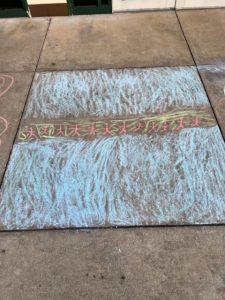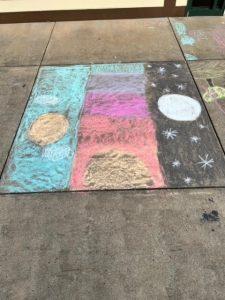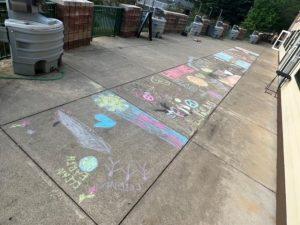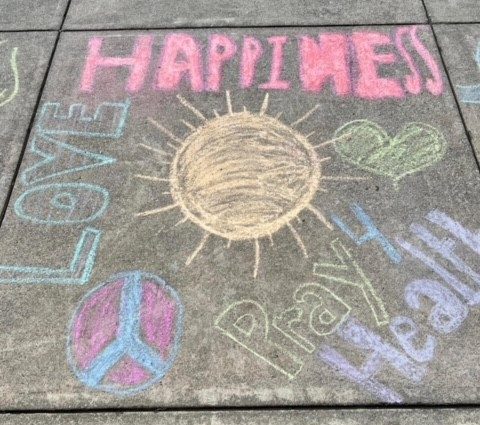Ma Tovu Ohalecha Ya’akov, Mishkenotecha Yisrael!
How good are your tents O Jacob, your dwelling places O Israel!
Numbers 24:5
With these words, the prophet Balaam, praised and blessed our people. He had been called upon by the Moabite king Balak to curse the Israelites, but when his mouth opened, only words of praise emerged. Found in this week’s Torah portion, the words of Ma Tovu are often sung to begin a morning worship service, and are uttered by some when they first see a synagogue which they are approaching. We look to them as words of celebration and accomplishment, mixed with the satisfaction that our enemies were unable to curse us, overwhelmed by the strength of our nation and our God.

The rabbinic commentaries teach us that Balak and Balaam were convinced that the Israelite nation was weak and frail. In the Talmud (Sanhedrin 105b), Rabbi Yochanan teaches that Balaam intended to say that there should not have been synagogues or study halls, but God changed the words to “How good are your tents, O Jacob,”and he intended to say that the Shekhina, the Divine Presence of God, would never rest with the Israelites, but instead he said “Your dwelling places, O Israel,” referring to the places where the Shekhina could dwell among us. Balaam’s blessing continues, describing Israel like a flowing river with natural growth all around it, and in the 13th Century, rabbinic commentators wrote that “Balaam’s similes reflect the changing experiences of rivers and streams as reflecting Jewish history in the future. The more active the waters, the more they symbolize powerful blessings for the Jewish people” (Daat Zkenim).
As an experience in exploring the Jewish future, I am spending this week and next at URJ Camp Coleman, helping to support the educational and spiritual programming of the camp. There are over 30 of us from Temple Beth El here, most as campers, but counselors-in-training, counselors, and staff as well. Growing up, my experiences as a camper and a counselor were some of the most formative of my life, and I am honored and privileged to be able to give back by spending time at camp, hoping to create formative experiences for the next generation.

Last night, I got to witness the future of Jewish life in all of its glory, as the camp celebrated Tefillahpalooza. Every evening the camp gathers for worship, sometimes as an entire camp community, other times in age-based units, sometimes for a song session. But Tefillahpalooza is something altogether different. Counselors and the visiting rabbis and educators each choose a creative modality to lead prayer, like “Pray Ball Tefillah” on the ball field and “Courageous Tefillah” on the ropes course. The photos included with this message are of the “Sidewalk Chalk Tefillah,” where campers each expressed their understanding of a single prayer like Mi Chamocha or Hashkiveinu, and as we went from drawing to drawing, we explored all of the themes of the evening service.
As I watched the campers create their images, and looked out around the camp to see groups of campers having their own spiritual experiences in different ways, I could not help but think how right Balaam was with his blessing. Bunk by bunk, cabin by cabin, dwelling place by dwelling place, the future leaders of our Jewish community were forming their Jewish identities and their relationships with the Holy One—how incredibly good that is.

We are in a moment where so many people are worried about the future of Jewish life. Like Balaam, some claim that our institutions are not sustainable, they are not raising up lay and professional leaders to meet today’s and tomorrow’s challenges, and decrying a dearth of passion and inspiration within the Jewish community to even care that we thrive into the future. Their concerns are not without reason, but the fatalism that some of them express is, in my opinion, simply premature.
As I spend this precious time with our future leaders, I can feel their joy and their commitment flowing like a mighty stream. The campers are singing, playing, praying, and creating with joy. The staff are working hard to keep everyone safe and make sure the kids are growing and expanding their sense of selves and Jewish identities. To make a judgment about the current and future of the Jewish community based on what is happening at Camp Coleman and in Jewish camps around the country this evening, we can only declare that the future is as bright as the whites we will be wearing as we gather to welcome Shabbat.
I know for me it is.
Shabbat Shalom,

Rabbi Greg Weisman








